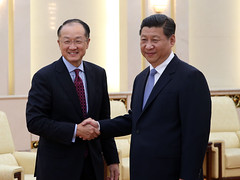
After the unexpected resignation of World Bank President Jim Yong Kim in January, the selection of his successor was subject to considerable scrutiny. Over 150 civil society organisations, academics and other individuals calledon the Board to live up to its commitment following Kim’s departure to an open, transparent and merit-based process. The call was echoed by the demands outlined in a January letter by the Bank’s own staff association. These demands are not new and resonate with long-standing calls to end the so-called ‘gentleman’s agreement’, which ensures that the IMF managing director is a European and the World Bank president a US national. They also reflect the calls made as far back as 2012, not by civil society activists or ‘disgruntled’ governments from the Global South, but by senior Bank staff. Former Chief Economist Joseph Stiglitz and Senior Vice-Presidents François Bourguignon and Nicholas Stern argued in a 2012 Financial Times article that the process is “not only hypocritical, it also destroys the trust and spirit of collaboration needed to manage the profound problems facing the world.”
Continue reading
 In the past, civil society has been quite forceful about what they want in terms of process for selecting a World Bank President, basically it can be summed up as anyone but an American. That battle has been lost.
In the past, civil society has been quite forceful about what they want in terms of process for selecting a World Bank President, basically it can be summed up as anyone but an American. That battle has been lost.